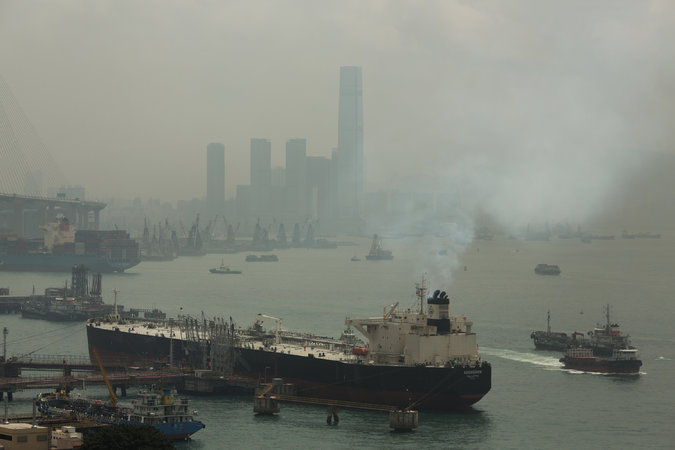ABS, a leading provider of classification services to the global marine and offshore industries, has completed a project with a group of leading Greek shipowners to support preparations for implementing the European Union’s Monitoring, Reporting and Verification (MRV) regulation for CO2 emissions. The result of this initiative is a clear interpretation of the regulation that allows companies to understand how they will be affected and what steps have to be taken to achieve and demonstrate compliance.
“The EU MRV Regulation establishes a regional regime that requires owners to put in place systems and practices that provide clear and precise evidence of compliance,” says Dr. Kirsi Tikka, ABS Executive Vice President, Global Marine. “Leveraging its knowledge and experience, ABS has worked with these proactive owners to help them understand the requirements and to find solutions that minimize interruptions to their ability to trade.”

Image: Jerome Favre/European Pressphoto Agency
The European Union’s Regulation 2015/757, which applies to ships above 5000GT calling at EU ports, requires that owners establish and maintain accurate processes for all aspects of the regulation to provide evidence of compliance. It is widely seen as the forerunner to a global system of CO2 emissions reporting that will be established under the auspices of the International Maritime Organization.
ABS joined tanker owners Maran, Thenamaris, Minerva, Euronav and Tsakos in 2014 to begin preparing an MRV plan, the results of which were shared with INTERTANKO. As the project developed, the group was joined by CMM and bulk carrier operator Golden Union.
Testing took place over six months on a fleet of 15 vessels, including Aframax tankers (including ice class), Suezmax tankers, MR product/chemical tankers, an LR2 Product Carrier, a dual-fuel LNG Carrier, a steam-powered LNG carrier and Capesize bulk carriers.
At the end of the data-gathering phase, ABS reviewed emission reports, assessing the reliability, credibility and accuracy of the monitoring systems and the resulting reported emissions data and information. A summary of findings identified where existing fuel measurement systems, data flow and reporting needed to be aligned with MRV requirements.
Although ship emissions monitoring does not begin until January 1, 2018, Monitoring Plans must be submitted to the accredited Verifiers no later than the end of August of 2017. Owners need to have the appropriate IT infrastructure and support in place to meet the requirements and make sure ship and shoreside staff are properly trained. Planning and executing solutions in the near term will reduce the work required to demonstrate MRV compliance, and give shipowners confidence to prepare and submit accurate annual MRV reports.
Source: ABS